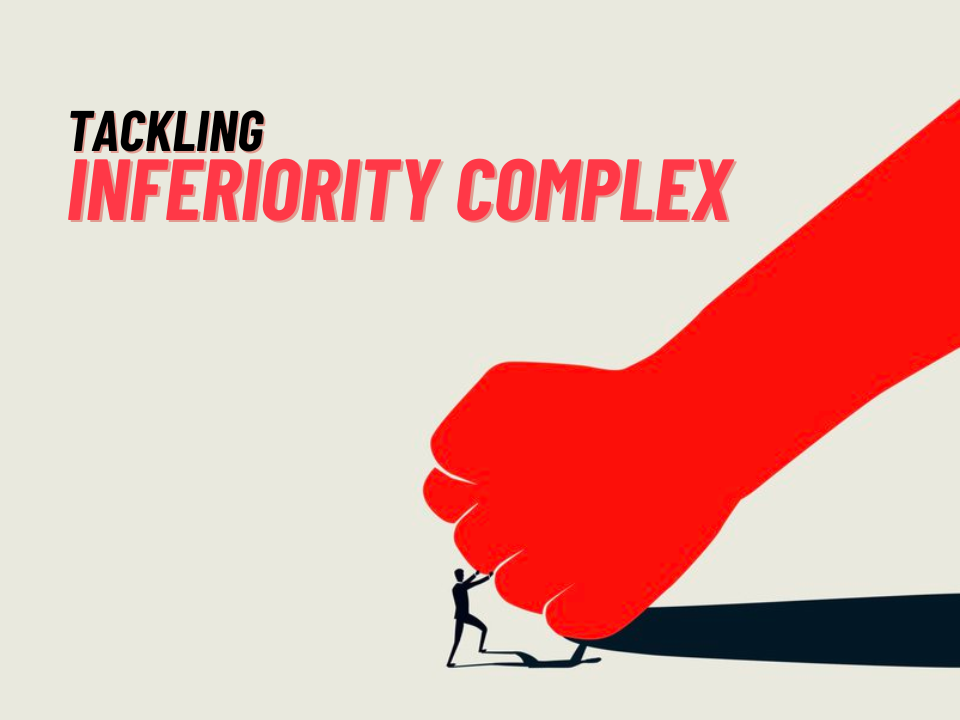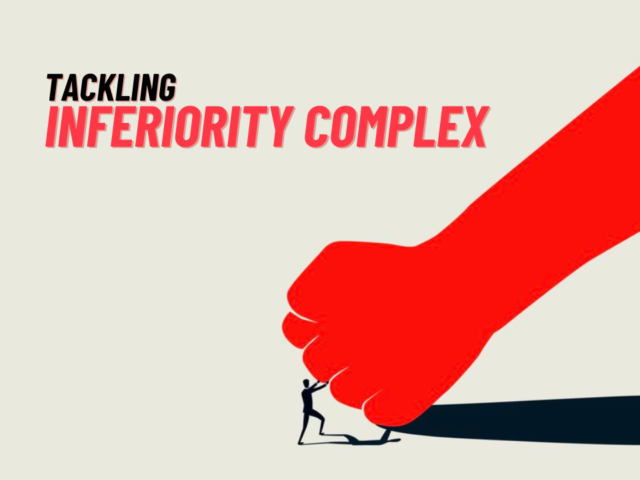
Anyone can get anxious while starting a new job. It’s possible for those initial days and weeks to be hazy. You have no acquaintances. You’re not familiar with the environment. You even have no idea where the coffee machine is. These might be the factors contributing to your inferiority complex at work.
However, even though you were hired for your knowledge and experience, if you’ve been working for some time and still feel like you can’t do anything, it’s possible that an inferiority complex is in your way of giving your best.
“Why Do I Feel Inferior At Work”?
Let’s take a minute to understand why you feel this way.
What Is Inferiority Complex

Image via Yahoo
The American Psychological Association defines an inferiority complex as an underlying feeling of inadequacy and insecurity that can result in behaviors such as intense competition, and hostility due to fear and shyness. The emotion may stem from an imagined or actual psychological or bodily lack.
The occasional inferiority we feel every day is not the same as an inferiority complex. The majority of us experience these emotions on an erratic or extremely situational basis, such as when we don’t make the team, are dissatisfied with our relationships, or witness peers reach life goals that we aren’t currently achieving.
How An Inferiority Complex Can Sabotage You At Work

Image via Inc. Magazine
An inferiority complex-related frustration might turn into a helplessness complex when one views apparently meaningful and positive input as unimportant. This makes it difficult to feel like you’re achieving, which over time may cause you to become disengaged from your work and lose job satisfaction.
It can be very difficult to gauge your progress towards goals when you have a mistaken sense of inferiority. For instance, you may think that you are much less skilled than you actually are, or that the work you did on a project was poor quality when it was excellent.
Tips For Overcoming Your Inferiority Complex

Image via The Guardian Nigeria
Overcoming an inferiority complex at work involves actively recognizing and confronting these unfavorable beliefs as soon as they surface, in addition to maybe pursuing therapy.
1. Compare Yourself With You
Healthy rivalry can motivate us to put forth more effort and foster achievement. However, constantly comparing yourself to other people to the point where it makes you feel jealous, uneasy, and annoyed is a surefire way to end up dissatisfied.
It’s beneficial to compare yourself to other people in order to redirect such comparisons inward. Remind yourself that if the company didn’t think you were competent, you wouldn’t have been hired. To comfort yourself, concentrate on your advantages. You can reorganize that attitude with the aid of this.
2. Do Frequent Reality Checks
When issues emerge at work, people with inferiority complexes frequently point the finger at themselves when in reality, the workplace is frequently the real perpetrator. Ask yourself, “Do I need to make changes myself, or do I need to look for ways to make changes in the environment around me?”, whenever you find yourself thinking poorly about yourself at work. You may feel more confident since you are being realistic rather than exaggerating.
3. Act On Evidence, Not Emotions
Are you reacting to something you think other people are thinking, or are your insecure feelings a genuine response to a problem? If you often find yourself misinterpreting situations that happen at work, seek a reliable group of mentors and peers who will be there for you when you need them. These individuals will watch out for you and offer you constructive criticism.
In the end, we have to have total faith in order to break the cycle of addiction and compulsion. You have to desire to be freed from it before you take the step to improve your life. Inferiority complex might not be your concern, but you sure have your own issues that make going to work dreadful. Learn How To Manage Negative Emotions at work.










